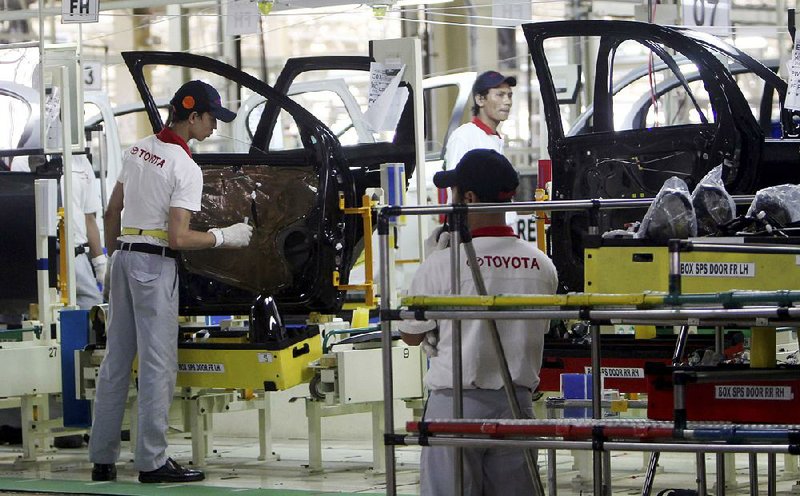TOKYO -- Toyota plans to build new auto assembly plants in Mexico and China, ending a self-imposed three-year break from expansion over quality concerns due to massive recalls.
Toyota Motor Corp. announced last week it will invest $1 billion in the plant in the Mexican state of Guanajuato, creating 2,000 jobs to make the Corolla compact car, the company's second-biggest seller in the U.S.
Production is to start in 2019, with annual output estimated at 200,000 vehicles. That will consolidate Corolla production for North America in that plant and Toyota's plant in Blue Springs, Miss.
Toyota will stop producing Corollas at its plant in Ontario, Canada, which will instead focus on more expensive mid-size vehicles. Toyota did not give specifics. The plant now produces Lexus models, the RAV4 sport utility vehicle and the Matrix hatchback, in addition to the Corolla.
Also, Toyota is adding a third assembly line next to its plant in Guangzhou, China, investing $440 million. The line is to be completed by 2017, for a model it declined to disclose.
Annual production capacity will go up by 100,000 vehicles. The new line won't create new jobs because the existing two lines will become more efficient, reducing the number of workers needed, according to Toyota.
A Toyota executive, briefing reporters in Tokyo over a video connection from Nagoya in central Japan, said Mexico and China were chosen because they are two markets where auto demand is expected to rise in coming years.
Toyota's investment in Mexico follows a string of major projects by other automakers, and President Enrique Pena Nieto said it shows the country is as an "optimal place for global companies to invest and thereby expand their presence in the entire world."
Pena Nieto said Mexico's advantages include qualified workers and good labor relations.
Toyota has been working on a strategy for growth called Toyota New Global Architecture based on more widespread sharing among models of platforms, or the basic parts on which cars are built, as well as other components.
The "architecture" is based on a leaner, smarter approach to production, aiming to become as competitive and as fail-proof as possible in quality. The first cars under the system are to roll out later this year.
Acknowledging the company had grown too fast, Toyota President Akio Toyoda put on hold for the past three years any plans for new plants after the recall which began in 2009.
More than 10 million Toyota vehicles were recalled around the world for faulty brakes, sticky gas pedals, ill-fitting floor mats and a range of other defects.
Toyota is still embroiled, along with other automakers, in a recall involving air bags made by Takata Corp. of Japan which can deploy and rupture with enough force to cause injury or death.
It has been eager to put the recall woes behind it, but Toyoda has repeatedly stressed future growth must be "sustainable" and ensure quality.
"An increase in production does not mean an undisciplined pursuit of more," he said in a statement.
SundayMonday Business on 04/19/2015
